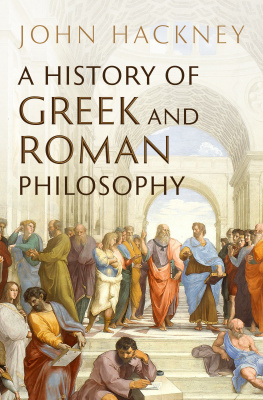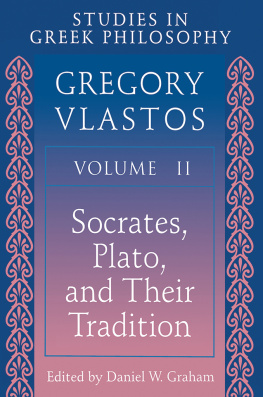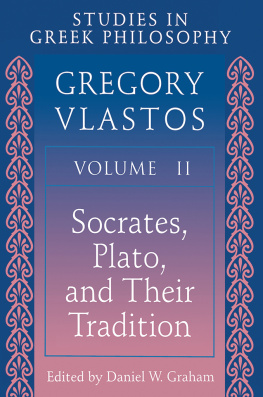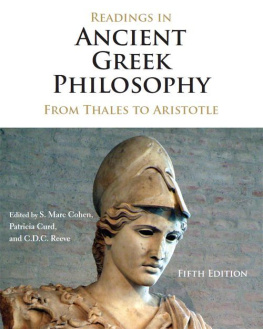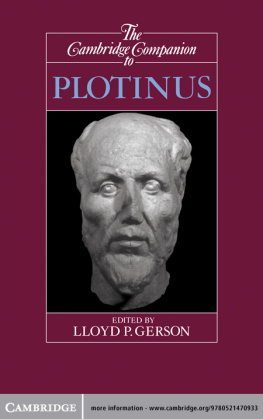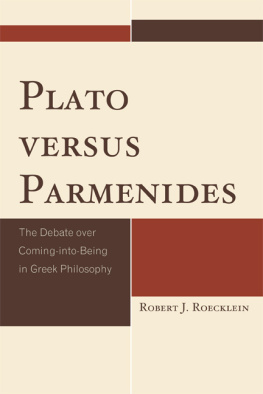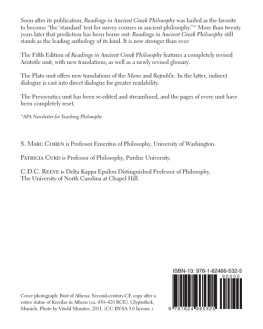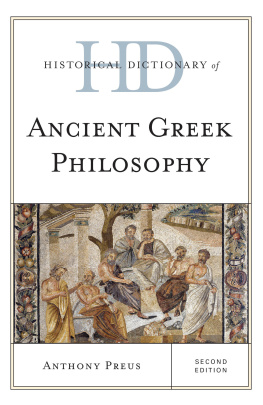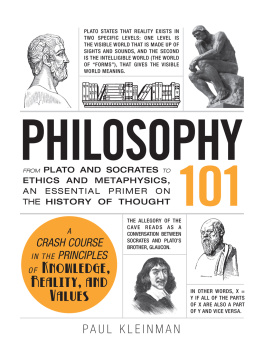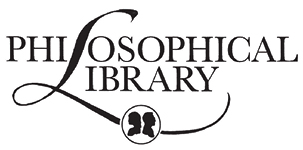Pagebreaks of the print version


A History of Greek and Roman Philosophy
John Hackney
Preface
This history of ancient philosophy is intended to give average people of average education an idea of how the principles of thought which dominate our civilization today came to be. It is not intended for the scholar, and it is certain that any student of philosophy or history would find many things lacking in this work. Of them we ask indulgence.
Various notes of thanks are due in the preparation of this book. First of all to Almighty God who has given me everything of value I possess. Then my dear parents, my father an avid reader, and my mother who at great cost to herself equipped me with the sort of education that makes a mind turn to such things as philosophy and history. Next to the Very Reverend Father Casimir Walsh, O. F. M. who directed and encouraged me to put my findings into writing. To Miss Bernadette Nagly (now Mrs. Cyril Bates) who typed out a lengthy manuscript from atrocious handwriting, with unparalleled devotion and patience. Also that vast body of scholars, past and present, to whom I owe much. Without them this book could not have been written.
Even if one person puts this volume down better informed at the end than he was at the beginning, the task of writing will have been well worth while.
An attempt has been made to keep Greek and Latin phrases to a minimum, for it is generally irritating to the person unversed in these languages to be faced with long tracts of wisdom in an unintelligible tongue.
Finally, I accept all responsibility for all imperfections to be found in the following pages.
Chapter 1
Introduction
If we look at a fine building, one thing that impresses itself upon us is the dependence of one part of the structure upon the part beneath or beside it. The parts give a strength, meaning and unity to the edifice which otherwise would be lacking. Let us carry this hypothesis a step further. The thoughts I possess today did not come from just anywhere, however imperfect they really are now. No, they depend for their existence upon what has gone before in my mind. So it is with every person in a greater or lesser degree, according to their natural capacity. If then, there are a number or society of people thinking, then their thought will depend upon what that society has thought in years gone by. Now, if man thinks it will be upon lines which, he assumes, will answer his never ending question of why? so the particular data to answer this question is then dependent upon what has gone before.
It is necessary in the light of this to consider philosophy. But there are in philosophy various thinkers propounding various views. Plato and Aristotle, for example, two of the worlds greatest thinkers, did not think alike, and even then, they cannot be understood without reference to Heraclitus, Parmenides and the Pythagoreans. So to see each thinker in his true perspective, it is necessary to study the philosophical background against which he worked. This will lead us to the History of Philosophy. The result of this would seem to be merely a collection of different points of view. But it does not take this form; neither does it take the form of a spiral, or of continued progress. Hegel said in speculation there are three stages, viz. viewpoint, objections or opposites and synthesis. But an historian cannot be expected to take a set scheme, and fit the pieces of his history within that framework. Hegel understood the various philosophical systems as a natural succession of progress in development. Such a position could only occur if the thinking of man is universal in spirit. But it is not. A limit must be set upon the capacity of each thinker, and this will depend upon his education, mental outfit, temperament, and so forth. Not only this, but it will depend on the philosophical systems that have gone before. An example can be taken from practically our own times. Fichte thought he was following on where Kant left off; certainly there is a common likeness, but Fichte was in no way obliged to follow Kant. Anybody following Kant could quite easily revise this thinkers ideas, and so the newcomer would have to deny the conclusions Kant accepted unconditionally from Hume.
Again, Hegel says that a final philosophy is the result of development and is truth in its highest form.
But this leads to difficulties. For how is one to assert that the body of truth being dealt with at a particular time represents a final phase of development? Could one say, for example, when studying the ninth century, that John Scotus Erigena represents the truth in its highest form? Modem scholars have pointed out that the progress of philosophy is really more a curve than a straight line.
What then does the History of Philosophy reveal? It shows what was said at the beginning. Man wants to know why? And when he knows this, he has Truth; the Absolute Truth, Absolute Being, the term absolute is most important here. In a word then, it reveals mans search for God. The fabric which is gradually unfolded in this search will draw the veil aside of doctrines far removed from the truth; yet sympathy and understanding must be exercised towards these thinkers for, as St. Thomas Aquinas reminded us, even a mistake is useful to throw the truth up in relief.
The philosophy of St. Thomas represents the highest pinnacle man has climbed in his efforts to arrive at Absolute Truth. But this statement can be misunderstood. The philosophy of St. Thomas is not something hidden in the recesses of the thirteenth century, unable to be developed, because it is an epic of bygone days and bygone people, in short, a dead thing. It is alive and capable of development for scholars are studying it today, and are being taught it, and you cannot teach a dead thing. Neither is it set aside from other philosophies, but advancing through modern thinking; in the case of a philosophy of error, as St. Thomas said, these errors are useful. Now Spinoza is not understood by reading St. Thomas; but conclusions held by the former, if true, are also formed in the latter as a system.
How is the History of Philosophy to be studied? Firstly, by looking at the problem as a whole as far as possible, and this will mean to see the inter-dependence of one philosophy upon another, and in their own particular historical settings. Then, to be able to recognise a philosophers point of departure from the material upon which he has hitherto been working. The biology taught by Henri Bergson can be understood in far greater measure, if one also considers mechanical theories, and the general trend of French Philosophy in Bergsons time.
A viewpoint from the field of psychology is always helpful; it brings with it an understanding and sympathy that is always desirable. So the student then has a view of philosophy from within. This will prevent him finding (as many Catholics would do) other philosophies as grotesque and unreal.

